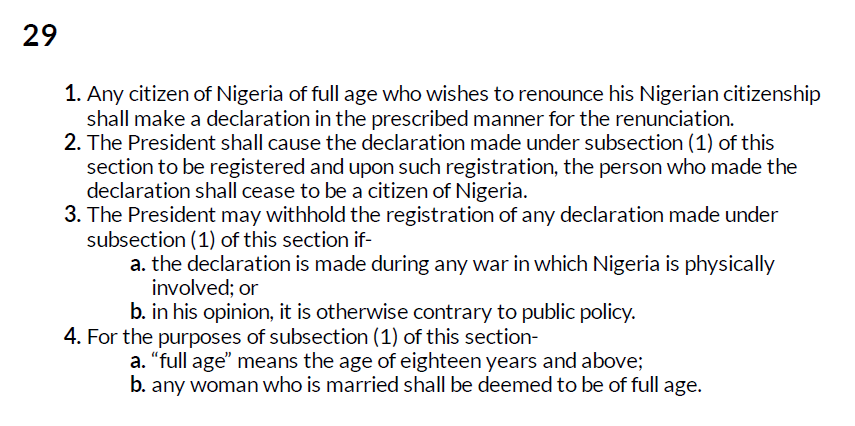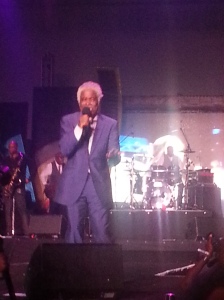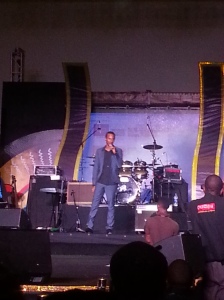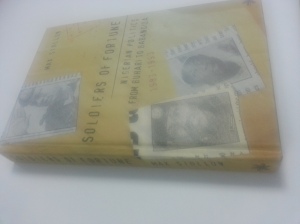This piece examines the questions around dual citizenship and eligibility for elective office in Nigeria. I am aware of a judgement of the Court of Appeal that reaches a different conclusion from mine. Hopefully, after reading this, the issues with that ruling become clear.
- First of all, the question of Eligibility.

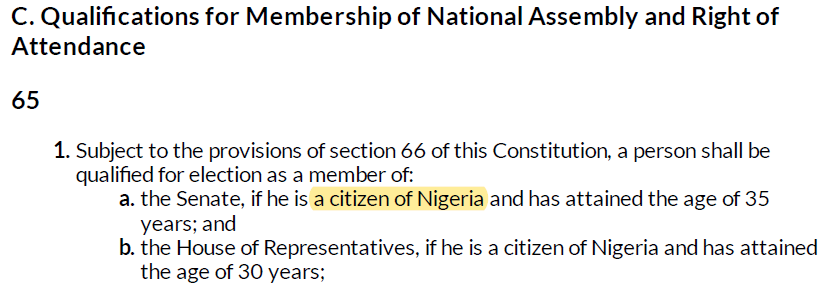
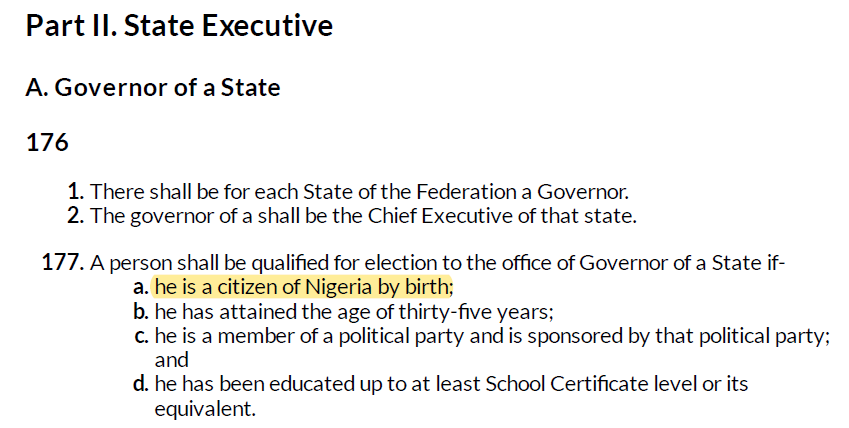
Already, a significant difference should be evident – citizenship by birth is mandatory for executive office but not for election into the National Assembly (or State Houses of Assembly).
2. Second issue – Citizenship.
There are 3 ways to be conferred with Nigerian citizenship in the constitution – by birth, by registration and, by naturalisation. See sections 25-27 of the Constitution.
3. Third issue – Disqualification.



Virtually identical provisions and all fairly straightforward still. Subject to section 28 of the constitution, if you have voluntarily acquired the citizenship of another country or made a declaration of allegiance to that country, you are disqualified from being elected to the offices in question.
“Subject to” here effectively means, unless section 28 gives you relief or says otherwise, you are disqualified.
4. So, what does section 28 say and who does it give relief?

The first paragraph applies to people who became Nigerian citizens by registration or naturalisation. If, having become a registered or naturalised Nigerian, they acquire or retain new citizenship, of a country of which they are not citizens by birth, they immediately forfeit their Nigerian citizenship.
So, for example, my name is Hassan Yassim. I am Iraqi by birth but became a naturalised Nigerian in 2017. I then japaed to Canada and acquired Canadian citizenship in 2023. By virtue of section 28(1), upon becoming a Canadian citizen, I forfeit my Nigerian one.
Alternatively, if I discovered I was entitled to Canadian citizenship by birth through a parent or grandparent, I would not forfeit my Nigerian citizenship.
The second paragraph says that registration or grant of naturalisation, if the applicant has already acquired another country’s citizenship (one not entitled to by birth), is dependent on renouncing that citizenship or nationality.
We go back to me hypothetically being Hassan Yassim again. If at the point of applying for Nigerian citizenship, I was already a naturalised British citizen, then my Nigerian citizenship will lapse if I don’t renounce my British citizenship within 5 months of being granted Nigerian citizenship.
5. Section 28 and Disqualifications
From the foregoing, it is evident that section 28 is irrelevant to people who are Nigerian citizens by birth. Both paragraphs sit wholly within the context of registration or naturalisation.
As a result, the conclusion has to be that section 28 has no bearing on those who, by voluntarily acquiring dual citizenship, have been disqualified from running for the offices of President, Governor, or their deputies.
Section 28 only applies to people who became Nigerian citizens by registration or naturalisation. Such people are entitled to contest for seats at the National and State Assemblies. The question is, what impact does section 28 have on the eligibility of naturalised Nigerians who subsequently acquire another nationality? What does section 28 permit them to do?
The answer, in my view, is that it only allows them to retain their Nigerian citizenship if the new nationality they subsequently acquire is one to which they are entitled by birth. If they are not entitled to this other citizenship by birth, they would not be eligible to contest for legislative office.
Conclusions.
- Dual citizenship disqualifies someone who is a Nigerian citizenship by birth if the second nationality was voluntarily acquired i.e. the second nationality is not one they have by birth.
- Dual citizenship disqualifies someone who is Nigerian by registration or naturalisation if the second nationality is not one they have by birth.
- You are only eligible for elective office in Nigeria as a dual (or multiple) citizen if you are entitled to your non-Nigerian citizenship(s) by birth.
Post-Script – Renunciation of Citizenship
